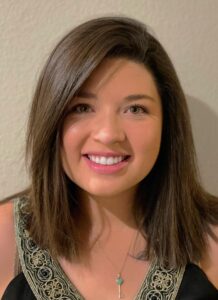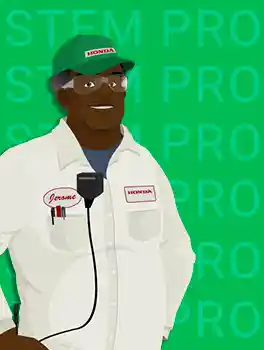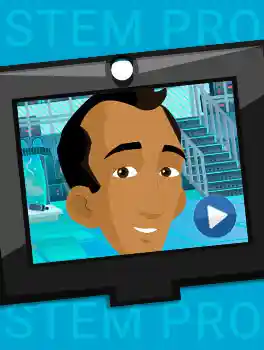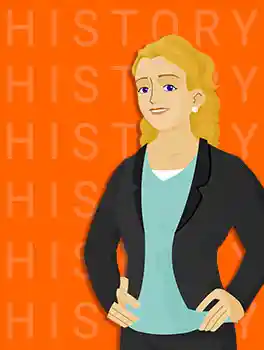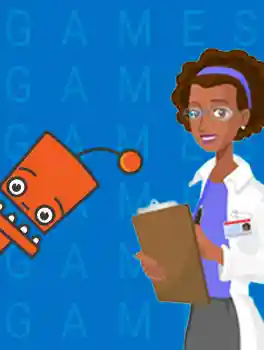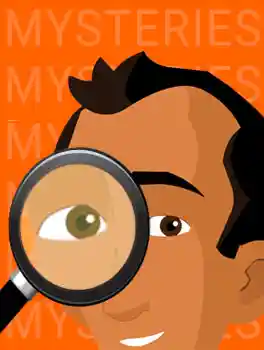Edheads.org
Welcome to STEM Stars Powered by edheads.org—where you get an inside look at careers in science, tech, engineering and math. Today’s guest is rocket scientist, Caitlin Robinson.
Caitlin Robinson
My name is Caitlin Robinson and I am a rocket scientist at United Launch Alliance. So what United Launch Alliance does is they’re a launch service provider. So basically we build rockets and launch payloads, both commercial and government, up to a multitude of different orbits. Essentially, we help all of our customers explore the universe. We also help in regards to military defense.
And so, you know, in a way, we’re helping protect globally as well as protecting the nation from outside threats. So it’s kind of cool because really we get to see a little bit of everything. My specific job as a rocket scientist, I work in GSE, which stands for Ground Support Engineering. So we basically work on all of the transportation and the facilities is that get the rocket ready to launch.
That’s kind of where all of the magic happens right up to the launch. So it’s pretty cool to kind of be able to work on all of those systems that control, you know, specs like the temperature and the pressure of the rocket right up to when it lifts off. So that’s kind of the gist of what I work on.
So what’s it like to have a job that people really only see in movies? It is a little bit weird, but it’s it’s really exciting because I think people have a stigma on what rocket scientists are. And so being able to kind of educate them on, you know, on exactly what we do and the nitty gritty of everything and it really helps educate them.
I think one of the biggest misconceptions is how people deal with the anomalies that occur leading up to or during launch. So essentially, if something goes wrong right before or during the launch, it’s not a mad scramble. You know, people aren’t panicking. And really, I think a lot of times they portray it as maybe one or two people that are in charge of the whole thing that can see the one issue. What it actually is, though, is it’s it’s a team effort. The coolest thing about my job is just being able to work on something that impacts the nation and the world. I think, you know, a lot of times people think about rockets in space and it seems really flashy. And it is it is a great job!
It’s super interesting to be able to say that you’ve worked on a rocket and that you’re contributing to a liftoff of a rocket. But I think the bigger picture really is the impact that, you know, I get to contribute to to the nation and the safety of the nation. And I think really the bottom line is the space industry is growing rapidly.
And so I think it’s really cool to kind of be able to be a part of it. I think I definitely faced a multitude of obstacles when I kind of pursued this career and pursued engineering in general. You know, I guess the first one really is my immediate family. They don’t have any engineers or any STEM backgrounds. That was the first obstacle to have to tackle was to kind of step out of what my family had done and pursue that interest in STEM and kind of go out of my comfort zone a little bit.
You know, I feel like sometimes it’s hard in engineering because you do have a significant, significant majority of the workforce is men. And so I think some of the challenges associated with that is sometimes as a woman, you feel like maybe your voice is heard a little bit less or you can be less valued. But I think a lot of that really is misconception.
And I think, you know, I think genuinely in an engineering field, the name of the game is diversity, right? Something I do want to mention about the United Launch Alliance is they have a multitude of employee resource groups. And so essentially what those are are small extracurricular groups that you can anyone is welcome to join any of them.
A few of them are cultural. A few of them have to deal with gender identity. So we have an “out in space” group which is LGBTQ+ and we also have we have an Asian Pacific American Islander group as well, and that’s just naming a couple of them. So really, United Launch Alliance does do a really, really good job of promoting diversity.
If I could tell my younger self something, it would just be to be confident and to not let outside doubts kind of bleed themselves in. And I think really it’s important to the at the end of the day to just be confident in your own capabilities. A young person in their early to late years of high school being able to kind of pursue the space industry or STEM in general.
I think the biggest thing is to find clubs and take courses that pertain to it. I think, you know, in my personal experience, sometimes it was difficult to find that. But and I’ve also found that there are a lot of extracurricular clubs in high school that allow you to kind of pursue that interest and meet people that have the same interests.
So that kind of already kicks starts your network building. In communities that have limited access to extracurriculars or clubs that might allow you to kind of get a jumpstart into the STEM field, there are a multitude of opportunities online and even just as it’s as simple as YouTubing “rocket launches” or “how rockets are made” or, you know, the inners of those, I think I’ve I’ve been able to see plenty of videos on that that are extremely educational and helpful, and they really dove deep into the details.
So it allows people that might be interested to really figure out if that is something that they would want to pursue a little bit further.

